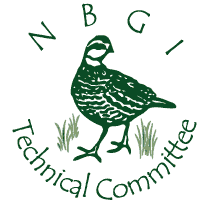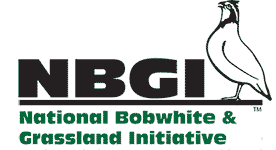The WHHCC is a federally appointed group advising both departments and is composed of national hunting, conservation, industry and shooting sports leaders. The council said adoption and support of NBCI’s approach would “proactively avert problems that have occurred with other declining game bird species like Lesser Prairie-Chicken and Greater Sage-Grouse.” The council said while multi-state plans had been crafted to deal with those species because of the fear of an endangered species listing, that same situation with bobwhites could be avoided by being proactive.
To reestablish bobwhites in their historic agricultural and forested settings, the council offered four strategies:
- establish diverse native grasslands and wildflowers on idled acres of marginal croplands and other rural landscapes
- convert up to one-third of existing tame pasture acreage to native forage grasses good for cows and quail
- actively manage pine and oak forests on private and public lands with a goal of promoting early successional forest/grassland habitats, including timber thinning followed by routine prescribed fire to restore open forest savannas
- mobilize Department of the Interior and Agriculture personnel to support widespread restoration of habitat for bobwhites, other grassland birds and pollinator species
“…now is the time for federal actions to prevent future ‘listing anxiety’,” wrote John Tomke, council chairman. “Your departments have the opportunity to ensure the restoration of habitat for bobwhite quail, other declining grassland birds and pollinators on private croplands, rangelands and forest lands. In addition, many National Forests, National Parks, National Battlefields, Military Parks and National Wildlife Refuges are ideal places …”
“The council is spot-on when they say these federal agencies can have a huge impact on populations of bobwhites, other grassland birds and pollinators on both private and public lands,” said NBCI Director Don McKenzie. “We appreciate the council’s support and would welcome proactive participation by both the Interior and Agriculture departments.”
Headquartered at the University of Tennessee Institute of Agriculture’s Department of Forestry, Wildlife and Fisheries, NBCI is an initiative of the National Bobwhite Technical Committee (NBTC) to elevate bobwhite quail recovery from an individual state-by-state proposition to a coordinated, range-wide leadership endeavor. The committee is comprised of representatives of 25 state wildlife agencies, various academic research institutions and private conservation organizations. Support for NBCI is provided by the Federal Aid in Wildlife Restoration Program, state wildlife agencies, the University of Tennessee and Park Cities Quail. For more information, please visit www.bringbackbobwhites.org and find us on Facebook, YouTube and Slideshare.

